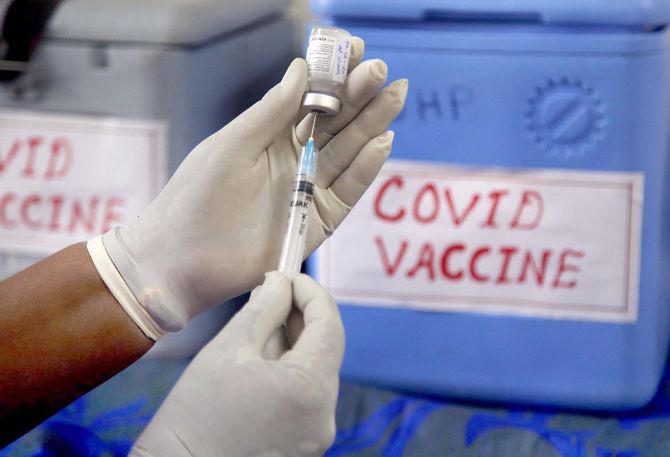Maintaining a rapid pace of the vaccination drive and quickly bridging healthcare infrastructure gaps across both urban and rural areas would emerge as the most sustainable stimulus for durable recovery of the Indian economy, says a report by the department of economic affairs.

Going by the current pace of inoculation, the finance ministry estimates 670 million Covid-19 vaccine doses will be administered before September under the Centre’s revised centralised vaccination policy, just in time for the festive season.
It said further expansion of vaccination will be a critical safeguard against the emergence of a possible third wave and will restore economic activities.
“A rapid vaccination drive coupled with targeted fiscal relief and monetary policy measures helped the economy in revival from the impact of the second wave of the pandemic,” the department of economic affairs said in its Monthly Economic Review for June.
According to the ministry, India’s average daily vaccination rate doubled in June to 4.13 million doses from 1.93 million in May after the implementation of the new vaccination policy on June 21, taking the total vaccination coverage past the 360 million mark.
“At the current inoculation pace, it is estimated that India will administer over 67 crore (670 million) doses before the festive season begins in September,” the report said. “Maintaining a rapid pace of the vaccination drive and quickly bridging healthcare infrastructure gaps across both urban and rural areas would emerge as the most sustainable stimulus for durable recovery of the Indian economy.”
The ministry has asked some states such as Assam, Bihar, Uttar Pradesh, West Bengal, Tamil Nadu, and Jharkhand to ramp up vaccination as greater coverage could provide a crucial boost to domestic demand.
“Vaccination remains the key guard against any prospective future waves and the coverage of the population needs to be enhanced across all states,” the report noted.
According to the ministry, the economic relief package, pegged at Rs 6.29 trillion, would further oil the wheels of the capex cycle via implementation of the production-linked incentive schemes and streamlining of processes for public-private partnership projects and asset monetisation.
The RBI continues with its efforts to calm the market’s nerves and revive sectors with both backward and forward linkages and multiplier effects on growth, the ministry said.
However, economic recovery remains uneven as indicators such as port traffic, air traffic, purchasing managers’ index (PMI) underline the impact of the second wave.
Some comfort is expected with projections of healthy monsoon coverage, gradually rising kharif sowing, and unlocking of states, which could ease food and headline inflation. The tax collections by the Centre in the first two months of the current fiscal and sustained momentum in capital expenditure, particularly in the roads and rail sectors, augur well for pivoting targeted fiscal support for continued economic recovery, the report highlighted.
However, it said, the resurgence of delta variant infections, firming inflationary pressures, unequal access to vaccination and burgeoning debt levels continue to lend substantial uncertainty to the global economic outlook.












 © 2025
© 2025